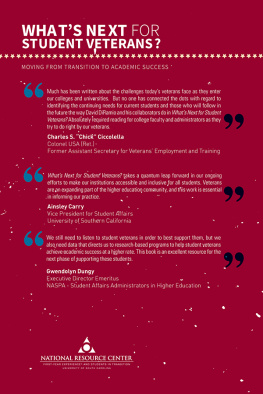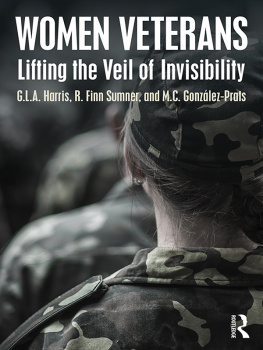Jaime B. Parent - Moving Past Ptsd: Consciousness, Understanding, and Appreciation for Military Veterans and Their Families
Here you can read online Jaime B. Parent - Moving Past Ptsd: Consciousness, Understanding, and Appreciation for Military Veterans and Their Families full text of the book (entire story) in english for free. Download pdf and epub, get meaning, cover and reviews about this ebook. year: 2019, publisher: Rowman & Littlefield Publishers, genre: Romance novel. Description of the work, (preface) as well as reviews are available. Best literature library LitArk.com created for fans of good reading and offers a wide selection of genres:
Romance novel
Science fiction
Adventure
Detective
Science
History
Home and family
Prose
Art
Politics
Computer
Non-fiction
Religion
Business
Children
Humor
Choose a favorite category and find really read worthwhile books. Enjoy immersion in the world of imagination, feel the emotions of the characters or learn something new for yourself, make an fascinating discovery.

- Book:Moving Past Ptsd: Consciousness, Understanding, and Appreciation for Military Veterans and Their Families
- Author:
- Publisher:Rowman & Littlefield Publishers
- Genre:
- Year:2019
- Rating:3 / 5
- Favourites:Add to favourites
- Your mark:
Moving Past Ptsd: Consciousness, Understanding, and Appreciation for Military Veterans and Their Families: summary, description and annotation
We offer to read an annotation, description, summary or preface (depends on what the author of the book "Moving Past Ptsd: Consciousness, Understanding, and Appreciation for Military Veterans and Their Families" wrote himself). If you haven't found the necessary information about the book — write in the comments, we will try to find it.
Its not as if we as a nation havent tried. The Veterans Health Administration (VHA) has seen the largest increase in funding in its history and has been given several free passes when the budget axe arrives. Federal funding and grants for education have also enjoyed similar financial favor; and housing opportunities have been increased. Yet on a rudimentary level, we as a nation cannot stop believing that GI Joe and Jane cant wait to come back home and pick up right where they left off before their military service began. The truth is, that person is gone and is not coming back. After months or years in a highly structured organizational environment, often times with deployments and horrific battlefield experiences, the military veteran has undergone a paradigm shift in their thinking, their character, and in the way they view themselves and others.
Advances in medical triage and transport have saved thousands of men and women who in previous wars who would have died on the battlefield; and new prosthetics and treatment strategies for those with invisible wounds have helped many. But an overburdened VHA isnt prepared to provide for the sheer volumes of veterans that return home. And with veteran unemployment rates traditionally running percentage points higher than their civilian counterparts, America still wonders why.
Many veterans, particularly those with PTSD are lost when returning home. Moving Past PTSD: Consciousness, Understanding, and Appreciation for Military Veterans and Their Families hopes to break this cycle. In their own words, veterans, caregivers, and the family members that love them are given the opportunity to tell us what is truly broken in the military to civilian transition. Advances in clinical treatments, the presentation of a new fast track job training program and new awareness for the challenges facing all military veterans, changes our way of understanding of who the 21st century veteran is. Through this understanding, we can change their lives and they can change ours.
Jaime B. Parent: author's other books
Who wrote Moving Past Ptsd: Consciousness, Understanding, and Appreciation for Military Veterans and Their Families? Find out the surname, the name of the author of the book and a list of all author's works by series.








![Louis Hicks - The Civilian Lives of U.S. Veterans: Issues and Identities [2 volumes]](/uploads/posts/book/133676/thumbs/louis-hicks-the-civilian-lives-of-u-s-veterans.jpg)